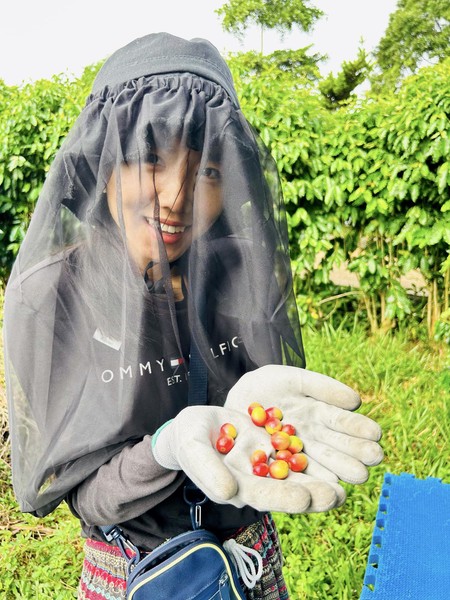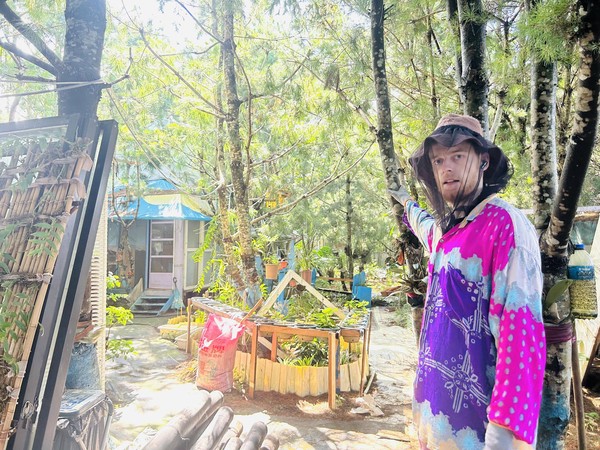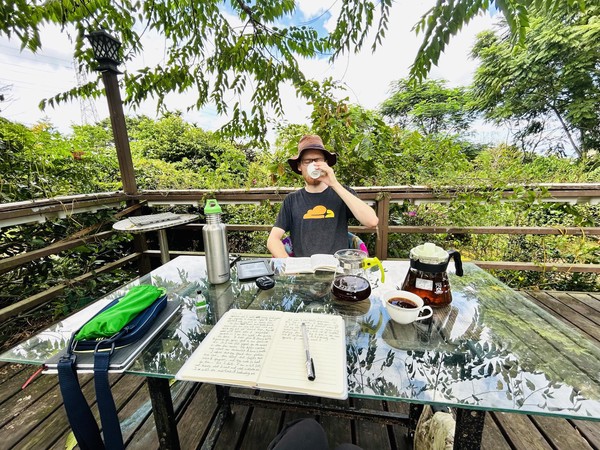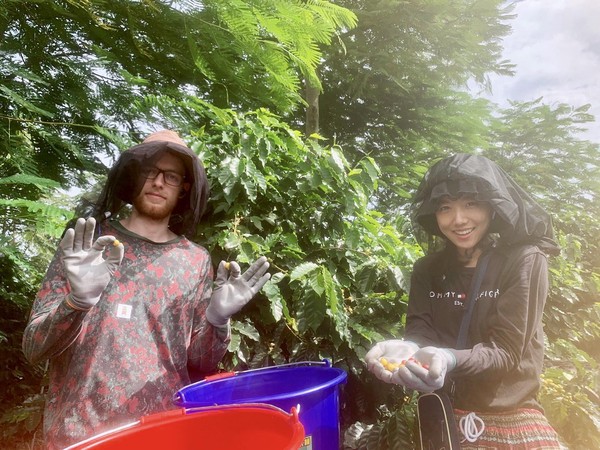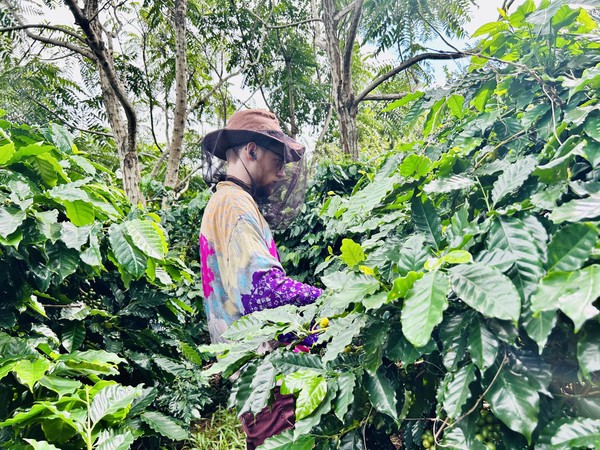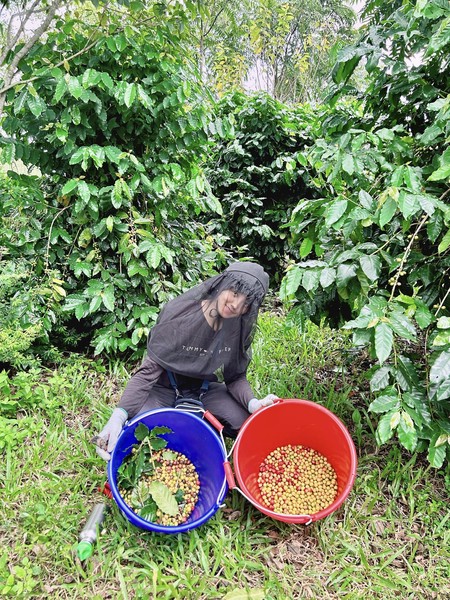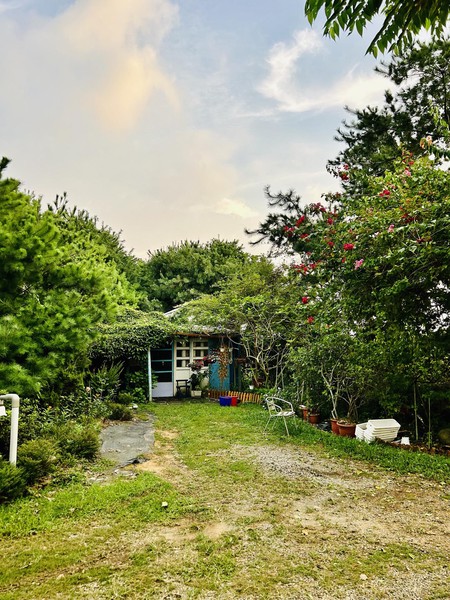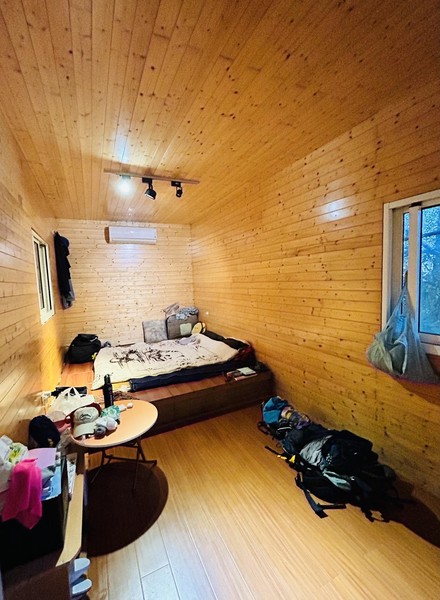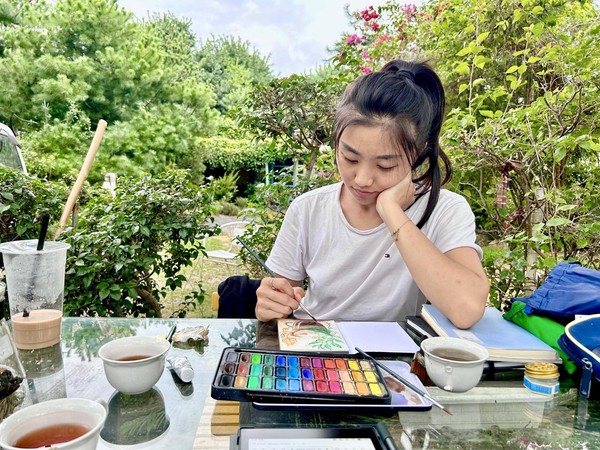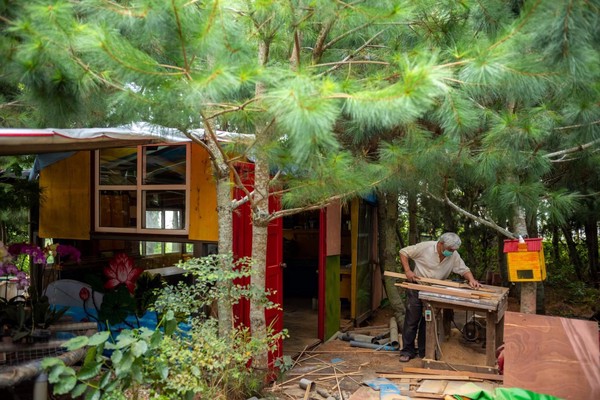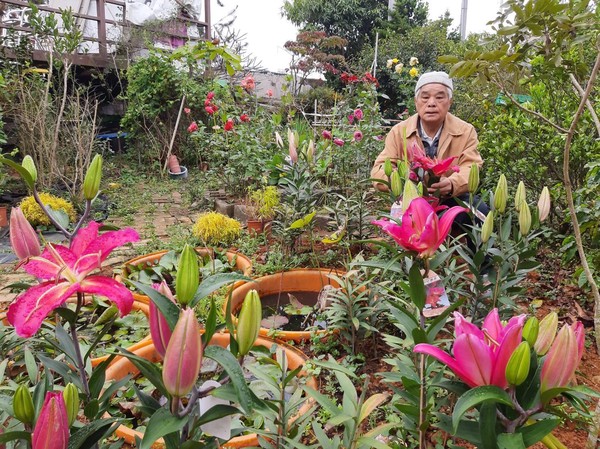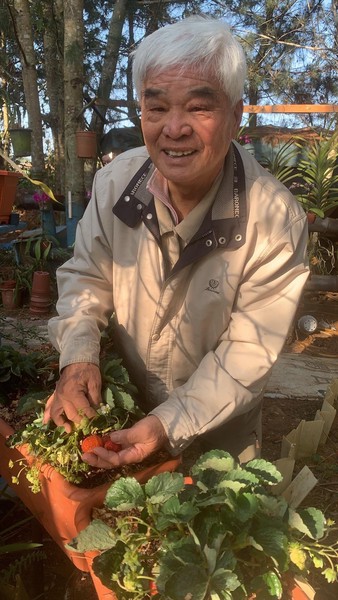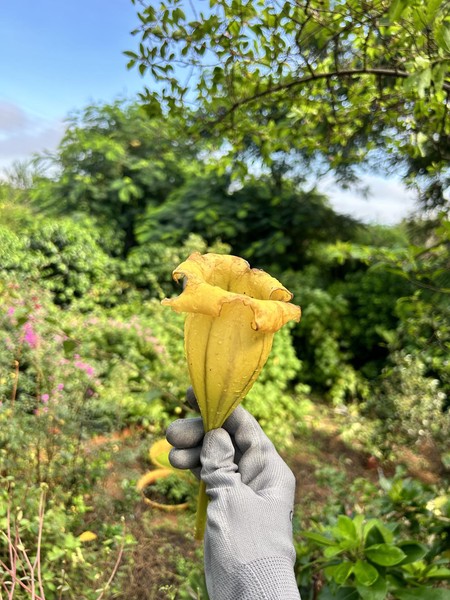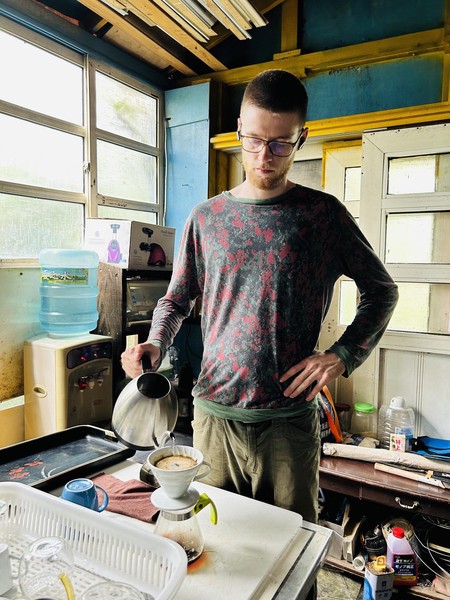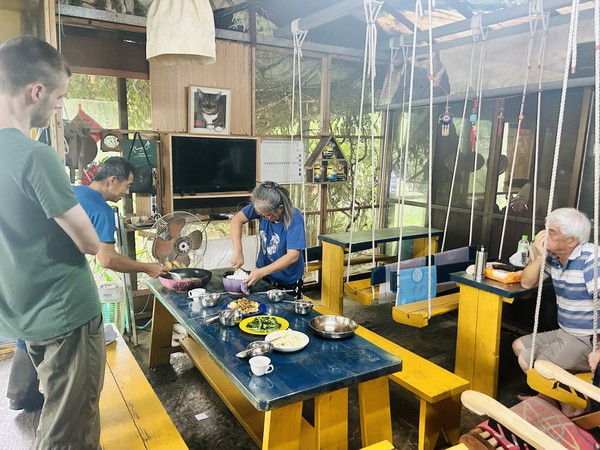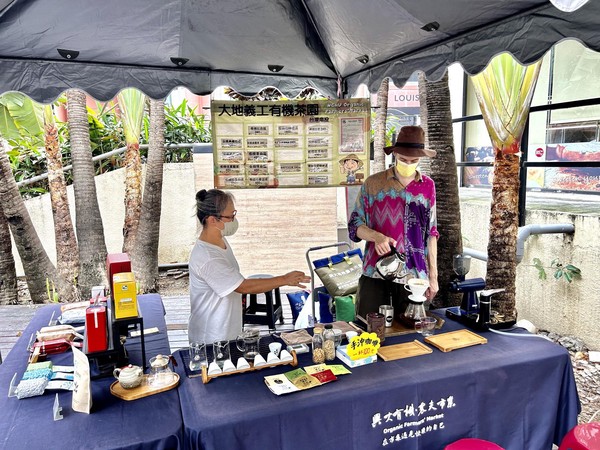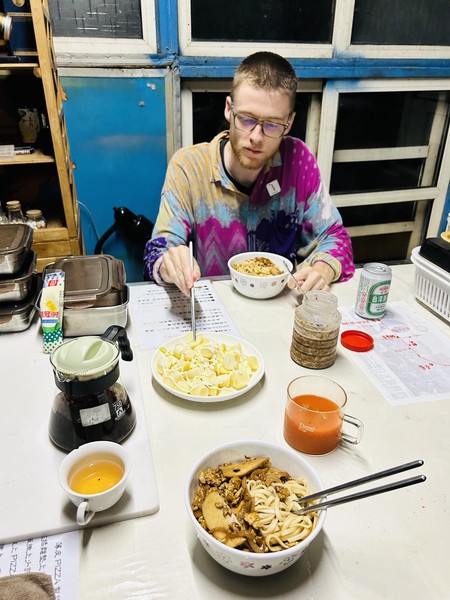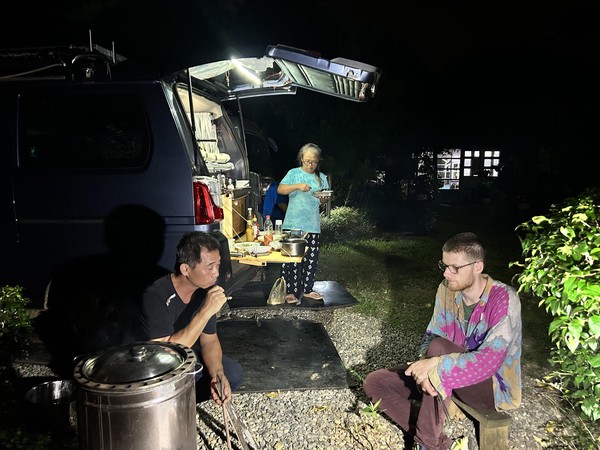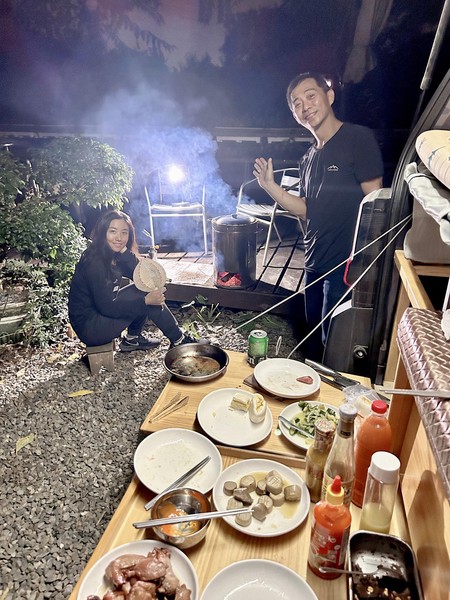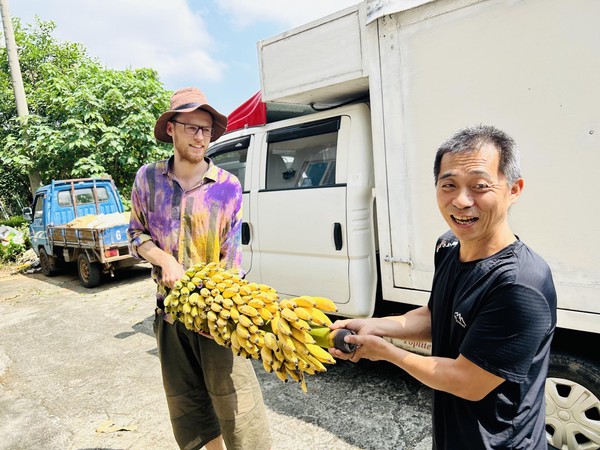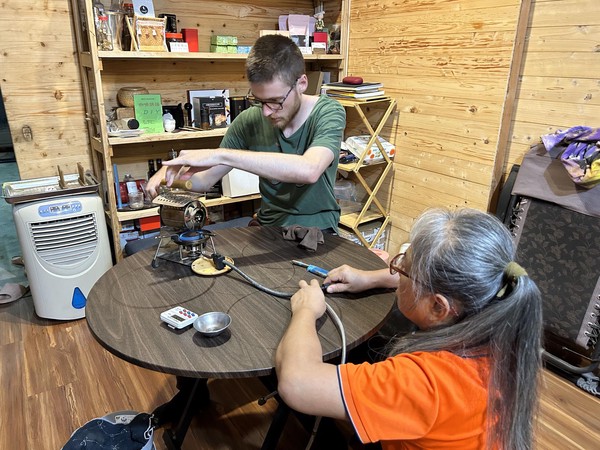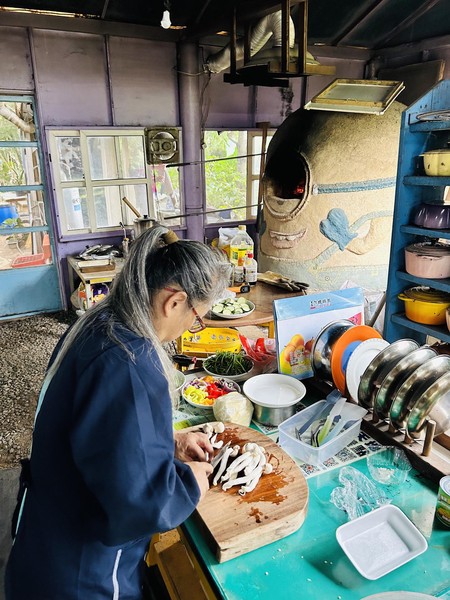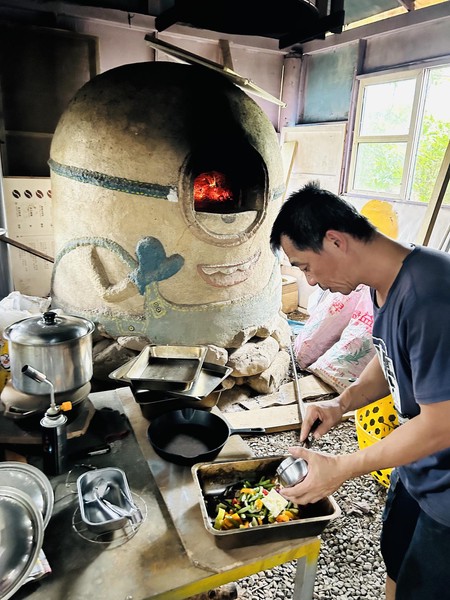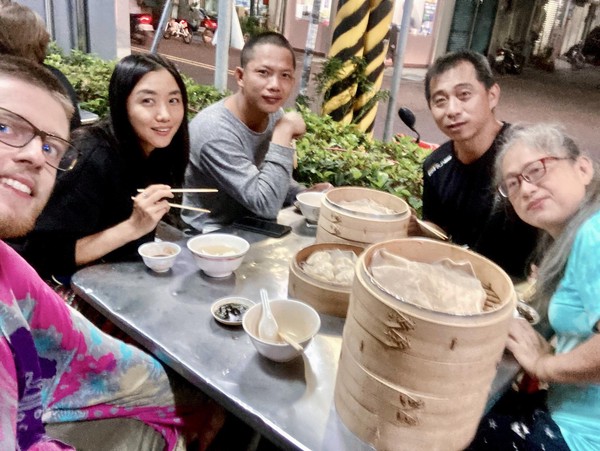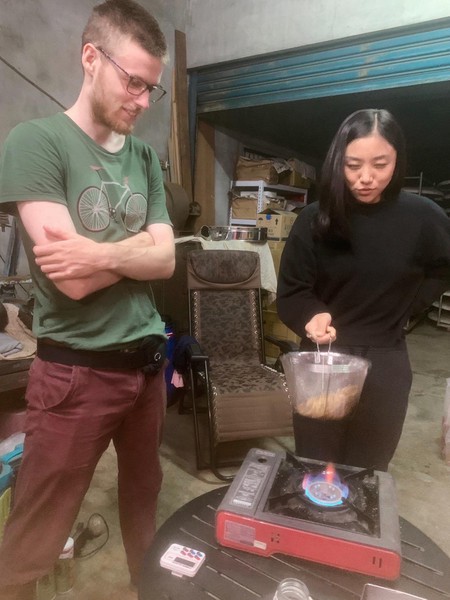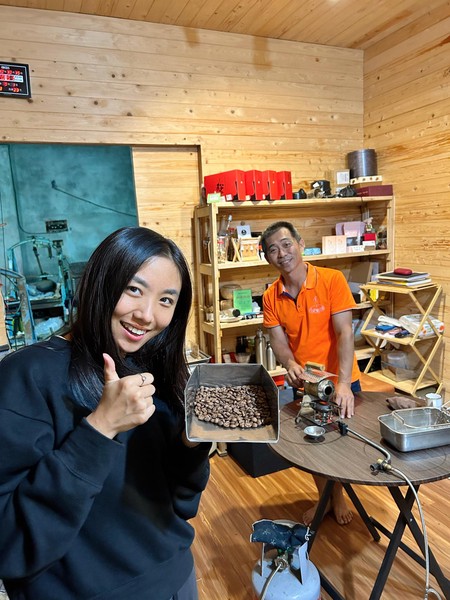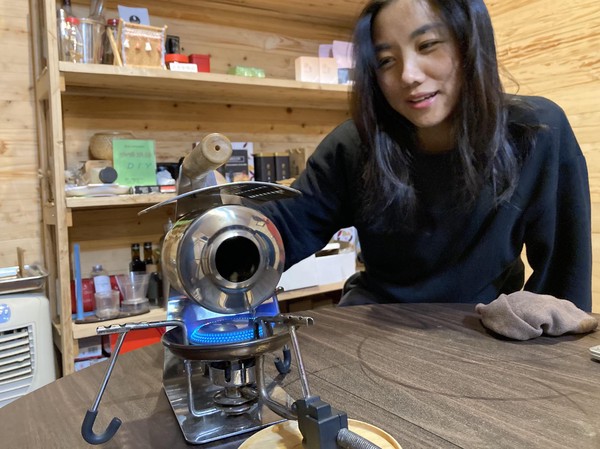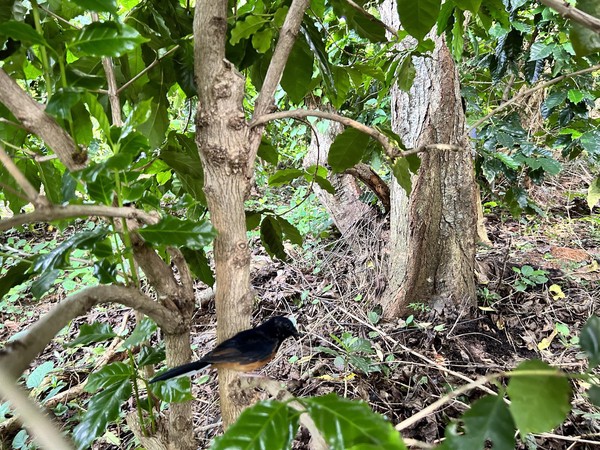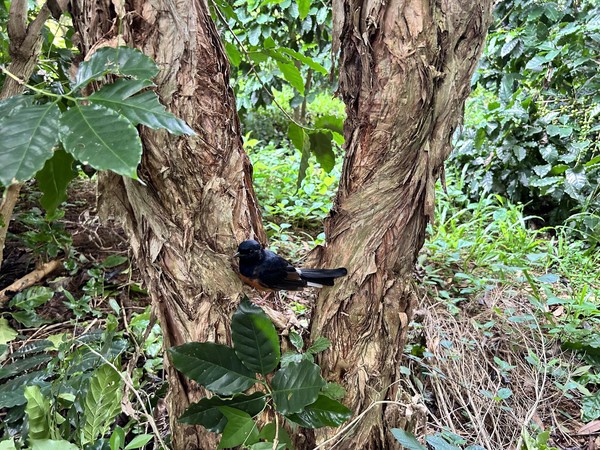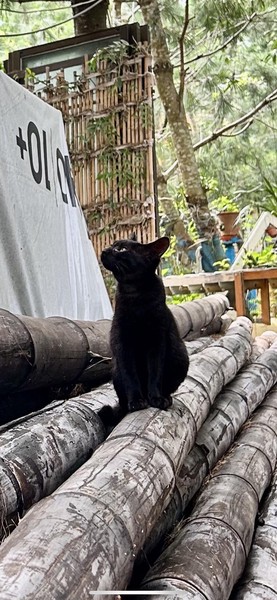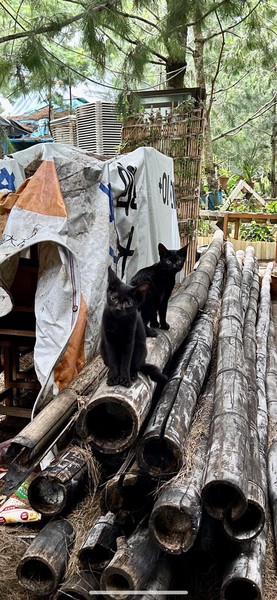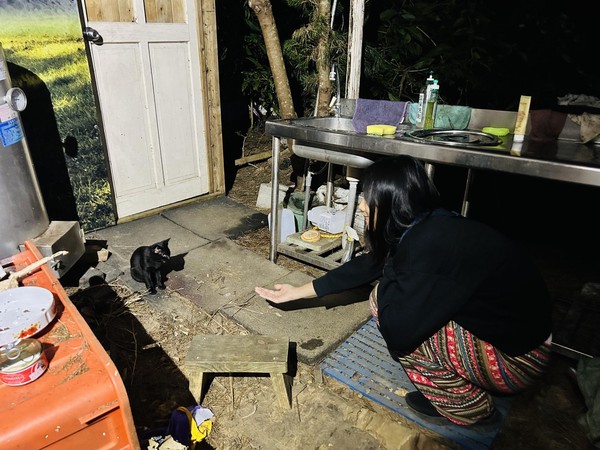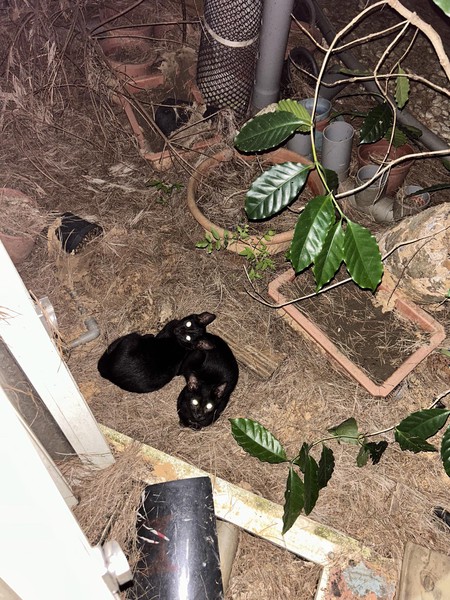Leaving sightseeing and hiking for later, a first stop in Taiwan was an organic farm in Nantou (found through WWOOF) where we ended up staying 2 weeks to work in exchange for accommodation. It was our first experience of such volunteer farm work and we initially had signed up for just a week as a precaution, but just after a day of staying there we quickly committed to one more week. We were extremely lucky to find such a wonderful farm with a natural, clean and comfortable environment and great hosts. The place is run by a retired couple, Minghua and Wenju, and we stayed with Minghua’s father A Gong in a cabin he built and extended over the years mostly by himself. It is right next to some of the coffee and tea fields with a beautiful backyard and a terrace in the front with trees and flowers all around, a proper “holiday home” atmosphere.
We really admire A Gong, who is 83 years old yet still very active, often tending the flowers and plants and doing all sorts of woodwork. He collects free or cheap second hand materials and uses them for building the cabin and furniture, a true DIY hero. We often chatted with him about his woodwork and experiences in the past and he also loved talking about all the travelling he’s recently done. Basically he is constantly searching for next destinations to visit as if his heart is always on the road. His daughter told us it’s because he worries about not being able to travel anymore as he gets older and weaker. One can only wish for grandparents as fit and willing to go out and explore, never losing the passion for life and curiosity for new things/places. We are inspired and wish the same for ourselves as we age.
The farm work was simple but not always easy: we pick both the mature beans and the bad beans that have worms or disease from the coffee trees. We also had scissors to prune the trees where branches were too long or the trees were growing too dense to pass. Sounds pretty easy but telling which shade of yellow means a bean is mature enough was quite challenging and requires some experience, so we shifted more and more towards focusing on just removing the bad beans. Pruning the trees we were maybe a bit overcautious in fear of making mistakes. Picking beans is quite the repetitive task, which can feel very meditative but also a bit boring, so we mostly listened to podcasts during the work. It was great to have a lot of time to explore topics dear to us like consciousness, sustainability and software by listening, much of which were so fitting to the current setting (at least the things Shiwen listened to, what kind of nerd keeps listening to programming podcasts on a farm?). The biggest challenge were the mosquitos that were insanely craving for our sweet foreigner blood. Although we were dressed up fully covered with layers and “showered” with mosquito repellent, they sometimes still managed to get through and bite us… how? Sometimes as we got bitten more often the urge to scratch got too big to resist and we’d scratch like mad for some short relief and bigger regret. Unlike the strong midday sun and high humidity we could not get used to the harassment by the little devils.
For coffee addicts like us, working and living on an organic coffee farm also felt like heaven. Not only did we taste the fresh, organic coffee but we could also learn about taking care of the coffee trees, harvest and the later processing to turn them into a final consumable product. Minghua and Wenju not only grow the beans, but also do all processing and roasting in-house, this is unlike the common model of separate growers and roasteries. They started the farm as a hobby more than 10 years ago and over the years became very experienced and knowledgable on the topic, regularly attending trainings on different aspects of the coffee/tea production. They are such welcoming and warm hosts, it was a pleasure to accompany them to an organic market, a tea exhibition and from time to time cook together, having barbecue and making pizza in the oven they built themselves (!). Their lifestyle and passion about organic farming and sustainability made a long-lasting impression on us, before leaving Taiwan we plan to see them one more time and keep in touch beyond this visit.
(Shiwen) I usually can’t stand black coffee, but the organic coffee that the farm produces became the first exception.
The coffee itself has all the flavors one could wish for so adding anything additional feels redundant or even detracting from the taste.
Every morning we were immersed in the smell of freshly hand-brewed coffee.
Just taking a small sip, tasting the changes of the coffee from sour to bitter to sweet until the pure coffee’s aroma lingers at the tip of tongue was a process almost like a meditation.
After the morning coffee ritual I would go to the garden for some stretching and greedily expand my lungs with the fresh, humid air before working in the fields.
What I cherished the most about the farm life was the calm and peacefulness which is so new to me.
The first time for a long time I experienced a feeling that life could be so simple and pure.
(Jannes) Everyday the first thing I did after getting up was to grind some of the recently roasted beans that our hosts would replenish every few days.
Wenju and his son Zhewei had given me some tips on how to do a good pour-over coffee by hand and I quite enjoyed the process of slowly pouring the hot water and smelling the fresh coffee.
There are many small details and techniques that influence the coffee’s flavor even when using the exact same beans, making it stronger or weaker, more bitter or sweet or sour.
I don’t think I deeply grokked most of it, but it was surely fun to get a bit fanatic about the coffee pouring.
There were some special animals on the farm that we interacted with, for example a little bird that has a long tail and mouth, with a small part of white feathers on his back. We learnt that he is a White-rumped Shama (长尾四喜) and very good with mimicking other birds’s chirping. He would literally come near us every day when we were picking beans, following us around with a safe distance. We could tell he was very curious about us and there was some sort of trust that he knew we would not hurt him, but out of natural instinct he kept distance. He would fly around us, jumping from one branch to another so it was easy to spot him. He is happy there and belongs there as there is everything he needs: clean air and water and enough worms to eat. Occasionally some strangers come to work in the farm and amuse him too.
(Shiwen) One of the most sweet memories there was when I took care of 2 little black cats. They are very alert and cautious, which is good to survive on the streets. But I wished to “tame” them so they could stay at the farm as their new home. I heard from A Gong that the winter can be quite cold (around 7 degrees Celsius) and some cats won’t survive and freeze to death. It’s so upsetting to hear and I worry so much that this would happen to them as well, so I tried my best to make the backyard comfortable and used a few “tricks”: I made little nests with old clothes for them in some hidden areas that they liked to chill, I kept feeding them with dry food and even can food that they are crazy about, I played with them with a small tree branch and at first they didn’t know what to make of it, but quickly they understood it’s entertainment and loved playing with me. Slowly but surely they were trusting me more and more. Now that I’m not on the farm anymore I really hope they still use the farm as a shelter especially when it’s cold or raining and they are hungry. I can only hope so, although I heard the cats who died would rather die in the cold nature than taking help from humans.
